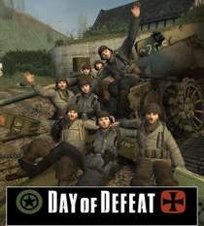Article by Michael S. Rozeff
For the State, for politicians, for government bureaucracies, and for many others, the War on Drugs is a big success, a program for other government programs to emulate.
For all these reasons, it is not hard to understand why in 2005, the U.S. continues its War on Drugs, even though it inflicts ever-rising harm on many U.S. citizens with no countervailing good to the public at large.
For all these reasons, it’s not hard to understand that when the authorities totally fail at the futile aim of preventing individuals from using selected molecules, when they inflict enormous damage on citizens of the United States, they are succeeding in the War on Drugs. They are accomplishing their aims.
The War on Drugs exemplifies the State strangling the society it governs. It is government of the State’s minions, by the State’s minions, and for the State’s minions. For them, the War on Drugs is a winner.
Friday, December 23, 2005
Tuesday, December 13, 2005
Global Network of People Living with HIV/AIDS paper on Injection Drug Users
20051212UKIDU.pdf >News Release
“Governments that limit access to needle and syringe exchange, to opioid substitution therapies and related services do more as endangering the lives of injecting drug users, their sexual partners and children,” says Carmen Tarrades, development officer at ICW and former injecting drug user: “These governments are actively supporting the spread of HIV and AIDS. They make the HIV pandemic worse.”
Website
“Governments that limit access to needle and syringe exchange, to opioid substitution therapies and related services do more as endangering the lives of injecting drug users, their sexual partners and children,” says Carmen Tarrades, development officer at ICW and former injecting drug user: “These governments are actively supporting the spread of HIV and AIDS. They make the HIV pandemic worse.”
Website
Human Rights and Prisoners who inject drugs
Article
"The authors argue that prisoners who inject drugs have a right to access harm reduction measures - those that reduce the harmful consequences of drug use without necessarily reducing drug consumption. ... Ultimately, this approach benefits not only prisoners but also prison staff and the public, and does not entail lessening of the safety and security of prisons."
"The authors argue that prisoners who inject drugs have a right to access harm reduction measures - those that reduce the harmful consequences of drug use without necessarily reducing drug consumption. ... Ultimately, this approach benefits not only prisoners but also prison staff and the public, and does not entail lessening of the safety and security of prisons."
Friday, November 18, 2005
Gaming fanatics show hallmarks of drug addiction
"... excessive computer game players showed classic signs of craving when they were presented with [game related imagery] from some of their favourite games – they desperately wanted to play, expected to feel better once they did, and fully intended to indulge again as soon as possible."
Would gamers stop if it gaming was outlawed?
Full article
Would gamers stop if it gaming was outlawed?
Full article
Friday, November 04, 2005
Keeping the Door Open: Dialogues on Drug Use
I recently had the opportunity to attend an excellent conference in Vancouver entitled Beyond Drug Prohibition: A Public Health Approach
A significant paper was released during the conference by the Health Officers Council of British Columbia which outlined a rationale for a comprehensive system of drug regulation to replace the current criminalization "war on drugs" approach.
You can access the paper, A Public Health Approach to Drug Control in Canada, here
A significant paper was released during the conference by the Health Officers Council of British Columbia which outlined a rationale for a comprehensive system of drug regulation to replace the current criminalization "war on drugs" approach.
You can access the paper, A Public Health Approach to Drug Control in Canada, here
Thursday, October 06, 2005
Absurdities & Atrocities
Those who can make you believe absurdities can make you commit atrocities- Voltaire
Enjoyable Rant ... you've heard it all before, but it always bares repeating... read it like its poetry... it flows with a horrendous cadence.
Enjoyable Rant ... you've heard it all before, but it always bares repeating... read it like its poetry... it flows with a horrendous cadence.
Saturday, September 24, 2005
The Strange and Seedy Case of Marc Emery, Canadian
Article

From the Los Angeles City Beat:
“The whole business proposition was to raise money to start a revolutionary botanical movement to destroy the U.S. drug war and to stop this vicious gulaging that goes on with our people,” he says, adding, “So I was very good at what I do, ’cause the DEA noticed.”
- Marc Emery

From the Los Angeles City Beat:
“The whole business proposition was to raise money to start a revolutionary botanical movement to destroy the U.S. drug war and to stop this vicious gulaging that goes on with our people,” he says, adding, “So I was very good at what I do, ’cause the DEA noticed.”
- Marc Emery
Monday, September 05, 2005
How the Free Market Killed New Orleans
How the Free Market Killed New Orleans by Michael Parenti
In New Orleans there would be none of the collectivistic regimented evacuation as occurred in Cuba. When an especially powerful hurricane hit that island in 2004, the Castro government, abetted by neighborhood citizen committees and local Communist party cadres, evacuated 1.5 million people, more than 10 percent of the country’s population. The Cubans lost 20,000 homes to that hurricane---but not a single life was lost, a heartening feat that went largely unmentioned in the U.S. press.
Thursday, September 01, 2005
Friday, August 26, 2005
The war on whatever
The war on whatever
Any ol' war will do, eh? Let's face it. Canada is a frontline state ... errrr, I mean a neighbouring state... and neighbours are supposed to do what the neighbourhood bully wants, or else?
We will never be allowed to go independent, not without a fight.
Any ol' war will do, eh? Let's face it. Canada is a frontline state ... errrr, I mean a neighbouring state... and neighbours are supposed to do what the neighbourhood bully wants, or else?
We will never be allowed to go independent, not without a fight.
Juanes: Legalizing Drugs the Only Way Out for Colombia
Juanes is the biggest male pop star in Columbia, if not all of Latin America. He calls for legalization in an interview for a Spanish newspaper.
see interview and report in NarcoSphere
see interview and report in NarcoSphere
Wednesday, August 17, 2005
US reaction to Venezuela kicking out DEA
Here we go again. Uncle Sam says: We've only just begun!
US revokes Venezuelan military visas
"The measure came less than a week after left-winger Chavez ended anti-drug cooperation with the U.S. Drug Enforcement Administration after accusing its agents of spying, in the latest blow to relations between Washington and Caracas...
Following Chavez's announcement on the DEA, U.S. officials said his decision would influence next month's ruling in Washington [certification] on whether Venezuela had cooperated in the fight against illicit drugs."
More concise reporting from NarcoNews :
US revokes Venezuelan military visas
"The measure came less than a week after left-winger Chavez ended anti-drug cooperation with the U.S. Drug Enforcement Administration after accusing its agents of spying, in the latest blow to relations between Washington and Caracas...
Following Chavez's announcement on the DEA, U.S. officials said his decision would influence next month's ruling in Washington [certification] on whether Venezuela had cooperated in the fight against illicit drugs."
More concise reporting from NarcoNews :
On the one hand, the “de-certification” threat is a pathetic one, as it appeals to the old logic that a country had to bend over backwards to win approval from the U.S. in order to maintain international legitimacy. Chávez has been one of the principal people to break that trance, and such a move won’t faze him or his supporters. But read between the lines and there is the further threat of violence that Chávez has so often denounced and U.S. officials so indignantly dismiss. The United States has only ever denied counter-narcotics certification to two Latin American countries. One is Colombia. The other is Panama, and that certification denial was quickly followed by a bloody U.S. invasion.
Pain and Chemical Dependency: Addiction & Pain
Pain and Chemical Dependency: Addiction & Pain
This societal decision to regulate medical practice and criminalize the administration of opioid drugs in some contexts led to secondary phenomena, with effects of their own. Prescribers became increasingly concerned about the potential for investigation and sanction or prosecution. To some degree, this concern has contributed to the underuse of opioid drugs. Equally important, the criminalization of opioid addiction fostered an illicit drug trade that, in turn, brought new problems, including the involvement of organized crime and violent gangs in drug trafficking. Over time, all these problems--the undertreatment of pain, the occurrence of opioid abuse and addiction, and the criminal activities surrounding opioid trafficking--have increasingly undermined the public health. Clearly, pursuant to pain management and opioid analgesia, there is a pressing need for rational and consistant policies, initial and continuing education of healthcare professionals, and application of sound principles of assessment, prescribing, and management.
Saturday, August 06, 2005
Wednesday, July 27, 2005
Rigorous Intuition
If you don't find something that catches your attention at Rigorous Intuition then what the hell are you doing reading here?
Subscribe to:
Comments (Atom)




